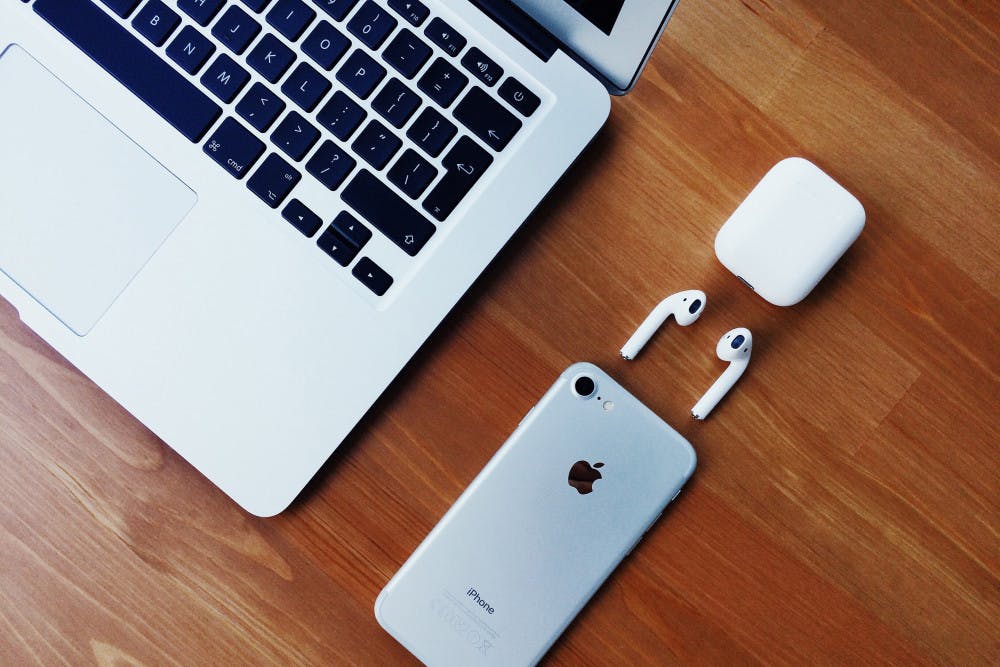I’ll out myself before anyone thinks they can discredit me: I have fake AirPods.
But I do have an issue with the way we treat the authenticity of copied products. There is a struggle to define what makes things genuine and what makes them a copy. As it gets easier for everyone to duplicate the general markers of what makes something genuine, it will become more difficult to determine the authenticity of things or products. In the case of products, it’s becoming more frequent to see frauds steal the most well-known and valued brands, like AirPods, for the sake of profit
My family took a big trip to Spain several years back. In every plaza, there was a street vendor selling Gucci handbags, Burberry scarves and Yves Saint Laurent purses. To the casual eye the deals may seem legitimate, but take it to any fashion fanatic. They’ll list off every missed stitch and pattern discrepancy. My mom bought a handbag and continues to sport, mostly for the novelty factor of it being a fake.
The idea of mimicry being the sincerest form of flattery seems to take a complete turnaround when it comes to fashion. When someone steals a pattern or logo, they’re asking for lawyers to come knocking on their door. It most certainly is not a compliment, it is a crime.
Patents in the US are meant to make sure inventors are credited and paid for the things they produced, but what happens when you can 3D print the replacement piece for a record player? Does the inventor give up on being paid if his creation can be replicated by anyone who has some spare cash and access to the internet and a printing center?
Stealing ideas creates innovation sometimes. When Mark Zuckerberg wanted to figure out a new way of communication, he didn’t go about reinventing the entire internet, he used what had been done before and built on top of it. Apple took touch screen technology from George Samuel Hurst, the phone from Alexander Graham Bell and the massive connectivity of the internet to make the first iPhone. Now companies like Samsung are trying to improve on the iPhone through bendable screens, but they may never have worked on this idea if the iPhone hadn’t come first.
Obviously stealing is wrong but the balance between morals and results is constantly in flux. Music has benefited from replication. Tape recorders once let home bands record and re-record their songs. Soon, punk and rock scenes were filled with talent that started out with only a tape recorder. Musicians can get copies of audio recording software and post their own songs on the internet and become viral.
I challenge anyone who reads this to think of their favorite product. How would you take that same product or idea and make it better? What would you take from your daily life and copy, but with a twist? Maybe it's Artificial Intelligence Radio Stations? Or AirPods with built-in tracking? The world is yours to copy and rebuild.
Daniel Gamboa is a UF journalism sophomore. His column appears on Fridays.





![Photo of the missing Leachianus “Leachie” gecko. [Photo courtesy of Mike Southwick]](https://snworksceo.imgix.net/ufa/907bd92a-0b29-40eb-a5fb-d7db7cf98b2f.sized-1000x1000.jpg?w=1500&ar=16%3A9&fit=crop&crop=faces&facepad=3&auto=format)
